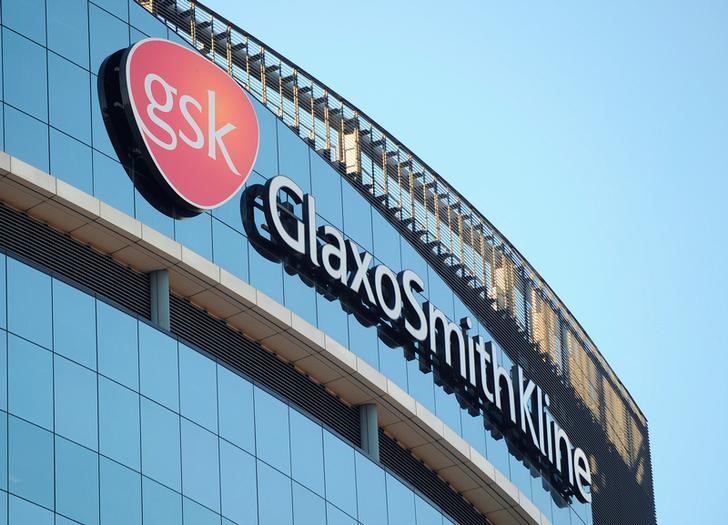LONDON (Reuters) - The threat of slowing demand and new competition in GlaxoSmithKline's (L:GSK) flagship HIV drug business unnerved investors in Britain's biggest drugmaker on Wednesday, sending its shares down as much as 1.8 percent.
GSK pared losses to 0.8 percent by 1220 GMT but remained among the top losers in London's FTSE-100 index after Citigroup (NYSE:C) downgraded the stock to neutral from buy and cut earnings forecasts by up to 9 percent.
HIV medicines, which GSK sells through its ViiV Healthcare unit, have been star performers in recent years and new CEO Emma Walmsley said in April that the "HIV portfolio continues to go from strength to strength".
GSK, which plans to defend its patch with a new two-drug treatment regimen for controlling the virus behind AIDS, declined to comment further on Wednesday.
Arch-rival Gilead Sciences (O:GILD) is developing a three-in-one daily pill and Merck & Co (N:MRK) also has a novel medicine that could challenge both companies.
Citi analyst Andrew Baum said Merck could, in fact, end up beating both GSK and Gilead with its new drug EFdA, which may reach the market as early as 2021 and has the potential to be developed as both a daily pill and a twice-yearly injection.
Given the early nature of Merck's experimental product, Citi currently forecasts heavily risk-adjusted peak annual sales of $150 million for EFdA but it believes commercial success could add more than $5 billion to forecasts.
Nearer term, Citi said the repeal of the Affordable Care Act, or Obamacare, could shrink the U.S. HIV market by increasing the number of uninsured patients as well as introducing greater cost-sensitivity among healthcare providers.
GSK's HIV drug dolutegravir, which is used in the medicines Tivicay and Triumeq, has been the mainstay of the British group's HIV operation and investors are concerned about any threat to what is a highly profitable business.

Antiretroviral therapy has turned HIV from a death sentence into a manageable condition but patients need to stay on the treatment for life, so there is a growing focus on making medication as convenient and well-tolerated as possible.